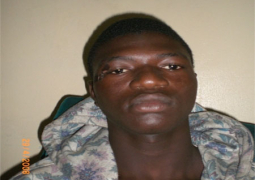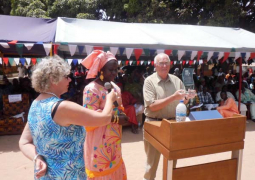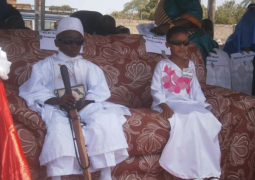The Female Lawyers Association of The Gambia (FLAG) recently organised a seminar on ‘trafficking in women and girls’ at the Paradise Suites Hotel in Kololi.
The event brought together people from different sectors of the society to create awareness on the need to combat the menace of human trafficking.
Speaking on the occasion, Ms Neneh MC Cham, president of FLAG, said the event was aimed at fighting the menace of trafficking in women and girls as well as to learn more about the criminal activities so as to combat such crimes to protect vulnerable women and girls.
She called on the need for more awareness raising, saying the search for greener pasture does set migrants on track where they are abused, which is illegal.
She noted the various relevant acts The Gambia has enacted. She also assured the gathering that they will continue with this trend for public awareness. “We should inform the whole society that the heinous act will not be tolerated in The Gambia and the world at large,” she said.
Ms Veronica Wright, UN officer on Drugs and Crime based in
She added: “This is something not new, is on the media, and a debate all over the world.” There are conventions with human trafficking and children; it is a huge topic but we have to consider our obligation as an international community.
Madam Wright said that trafficking in person is the recruitment and transfer, and harbouring people by means of force, or other forms of coercion or giving or receiving of payment or benefits to achieve the consent of a person having control.
She said further that the minimum standard of exploitation is prostitution while other forms are the use of people as sex slave, forced labour, and also keeping them in condition of slavery. This, she added, is practised in the 21st century around the world.
“This has led the international community to get member countries of the UN to do something,” she said. I am very much impressed with The Gambia for having an Act in place.”
Madam Wright added that only few developing countries have got legislature to keep in place structures to fighting human trafficking.
“Young people want to leave their country, not only in The Gambia, for greener pasture where they believe to have a better life in the process by coming with the traffickers,” she noted, saying that most of the people don’t know the risk of the journey and that sometimes family do all they can to pay criminal gangs to take them or their children to Europe.
According to her, criminals tend to target
She called on all and sundry to share the experience around the world to let people know about trafficking and its ramifications. She said: “Women and girls are the most vulnerable and most of the time women and children are sexually exploited.”
Participants were also shown films of young girls who have been victims of trafficking from other parts of the world such as Africa to




